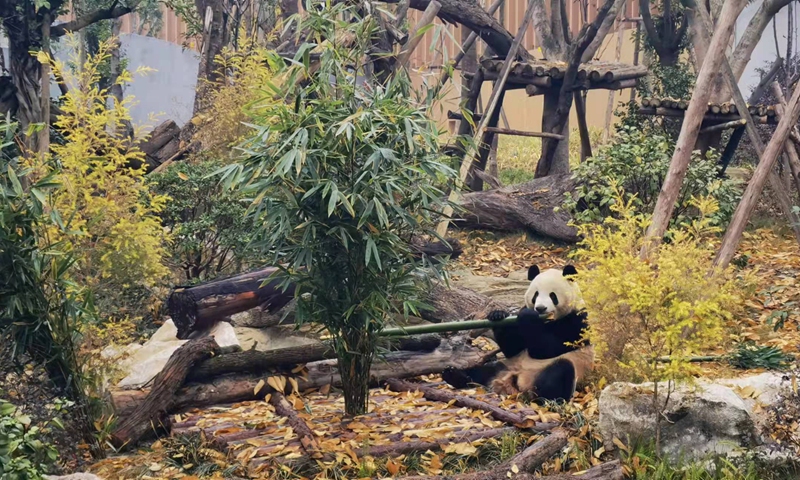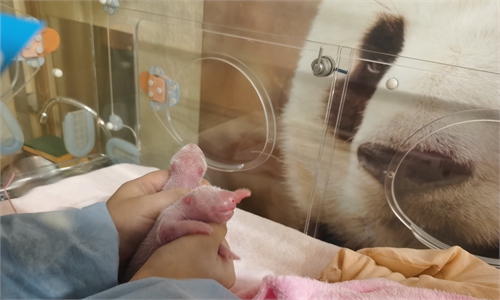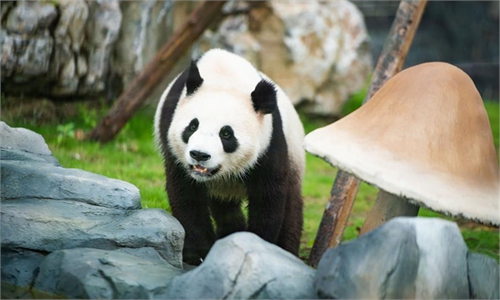
A panda eats bamboo at the Chengdu Research Base of Giant Panda Breeding in Southwest China's Sichuan Province. Photo: Courtesy of Chengdu Research Base of Giant Panda Breeding
The pandas at the Chengdu Research Base of Giant Panda Breeding in Southwest China's Sichuan Province are moving into their new homes in the expanded area of the research base with better protected privacy.
The expansion project of the research base which has been in the media spotlight since the beginning of its construction, plans to pre-open the expanded areas in early 2022 with its new panda enclosures designed to protect the privacy of the panda bears.
The environment of both indoor enclosures and outdoor sanctuary for the pandas in the expanded area will undergo significant changes, the Global Times learned from the research base on Tuesday.
More attention will be given to the privacy of the panda bears in the giant panda enclosures with only one or two relatively large observing areas on offer for zoo-visitors. The rest of the areas will be kept out of vision.
Diao Kunpeng, a panda expert and director of Beijing Qingye Ecology, told the Global Times on Tuesday that protecting pandas' privacy relates to anthropomorphism. "Since some pandas are more sensitive, they can get nervous when they are exposed to many human beings. The new enclosure design allows them to have space away from human beings," Diao said.
Besides, the panda bears will be provided a more comfortable living environment with abundant arbors and shrubs planted in the outdoor sanctuary and tree bark will be spread on the ground to make the ground softer, which the panda bears appreciate.
Disinfection work in the expanded area has been carried out since November to ensure the prevention and control of animal diseases. The giant pandas and red pandas will gradually move into their new homes when the disinfection is completed.
Around 40 giant pandas and 10 red pandas will be moved into the expanded area. The giant pandas have not yet entered their sexual maturation period and will not participate in the breeding program in 2022.
According to the research base, some panda bears will have stress responses to the new environment due to their individual differences.
The research base has arranged designated zookeepers for each panda to pacify them and help them better adapt to the new environment. After two to three days' adaptation, they will basically get used to their new environment.
So far, most pandas which have moved into their homes have adapted to the new environment and are eating, playing and sleeping normally.
The expanded area of the research base occupies an area of 169 hectares, doubling the area of the existing area and making the total area of the research base to 238 hectares, according to the research base.
The two areas that pre-open to the public will include 11 enclosures for both giant pandas as well as red pandas. Several popular science displays and pedestrian streets for tourists will pre-open to the public as well.




